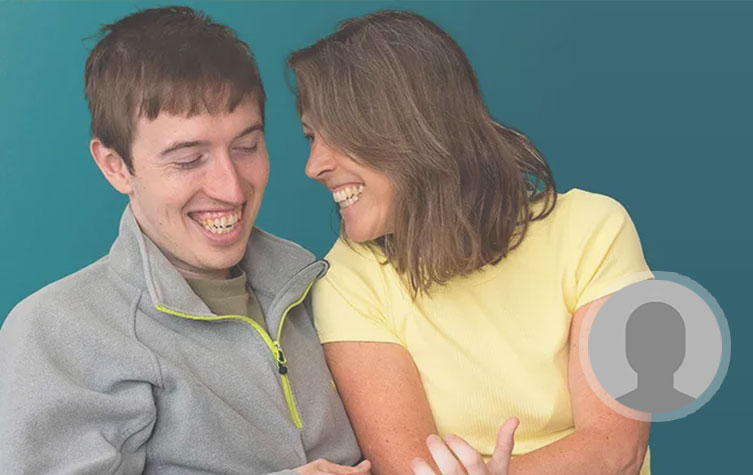Unfortunately, we know that neurodiverse people face many challenges in everyday life. For example, the Office for National Statistics (ONS) report that only 21.7% of autistic people in the UK are in employment, even though 77% want to work.
Here at Fujitsu, we’ve been working with Autistica – a national autism research charity that focuses on giving autistic people the opportunity to live long, happy, healthy lives by funding research, shaping policy and working with autistic people to understand their needs – since 2018.
Learning more about neurodiversity during this time has been an eye-opening experience. But it’s also been incredibly rewarding to be able to take real action and have a positive impact on people’s lives.
When we started to focus on specific, two-year charity partnerships about 10 years ago, one of our mains aims alongside helping charities of all sizes was to learn, adapt and grow as an organisation.
Our recognition as the ‘Corporate Charity Partnership of the Year’ at the 2021 Third Sector Awards is testament to this! And as we enter the final year of our partnership, I’ve been reflecting on what we’ve achieved so far – and I can proudly say that our partnership has been beneficial for everyone involved.
Creating inclusive workplaces through research and advice
Right from the start of working with Autistica, we learned there’s a critical need for more expertise and advice for employers on how to drive sustainable autistic employment, improve autistic wellbeing and support autistic talent.
So, we were introduced to the Autistica DARE (Discover Autism Research & Employment) initiative which works with companies to help create more inclusive workplaces.
We collaborated with them on research to find out more about how organisations can improve the experiences of neurodivergent employees. The data led to five main recommendations which we’ve been acting on at Fujitsu:
- Training to be provided to all staff so employees can better understand how to support their neurodiverse colleagues
- Information on how to support neurodiverse employees should be made more accessible and centralised
- There should be more information about company culture, norms and practices when onboarding new employees
- Improve communication for existing employees by providing clearer pathways for disseminating information about organisational changes and facilitation of dialogue between employees and Fujitsu leadership
- Valuing neurodiversity: messaging around disability should include explicit mention of neurodiversity to raise awareness of the positive impact having neurodiverse staff has on companies.
- I joined a webinar with some colleagues a few months ago to discuss these recommendations in detail and you can watch it on YouTube to find out more.
How Fujitsu is supporting neurodiverse employees
Prior to working with Autistica, we didn’t have an accessibility policy for designing our buildings, but now we do. And it’s inclusive for neurodiversity and not just for physical disabilities.
That means whenever we update our buildings, we design a quiet room for neurodiverse employees who prefer to work in a quiet space. Additionally, the added lighting controls enable people who respond to light frequencies to adjust the light source to their needs.
Also, we have a tool called the Be Completely You passport which allows us to capture information about our employees’ health, wellbeing and abilities, as well as the adjustments they need in the workplace.
This is great for when they change line managers. The information about their workplace adjustments is accessible and they don’t have to keep explaining their condition, which can get tedious or frustrating for the individual.
During the lockdowns in the UK, we offered online training webinars to our autistic employees to help improve their relationship management skills and have continued to develop this initiative over time.
We’ve also looked at ways we can improve our interview process for neurodiverse recruits. One of our suggestions to other organisations is that instead of a formal interview, line managers can offer a work placement so a neurodiverse candidate can see if the company is right for them. This is vital to getting more autistic people into employment.
In the first few years of our partnership, we raised over £150,000 from various fundraising activities such as runs, cake sales, and canal row tournaments. And we collaborated with the Alan Turing Institute to make the world more accessible for autistic people by building an app that helps autistic people and others who find it difficult to navigate around public places.
Just before Christmas, I also donned my elf outfit to welcome children to a virtual Santa’s grotto with proceeds going to Autistica.
Fujitsu and Autistica’s plans in 2022
After the success of our first two year’s working with Autistica, we decided to extend our partnership into 2022. And as we kick off this year, we have Autistica’s goals for 2030 at the front our minds.
I’m excited to be part of more activities this year as we work with Autistica to enable neurodiverse employees to thrive at work, so they can live their best lives, support our businesses to grow and make great contributions to society.
Click here to learn more about the Fujitsu and Autistica Report and how you can support your neurodiverse employees to perform better.

Written by
Craig Hall
Head of Charity Partnerships at Fujitsu

